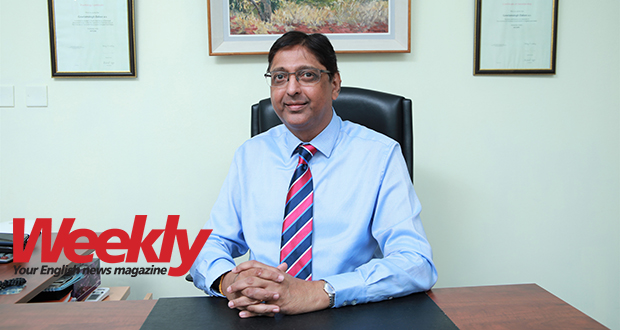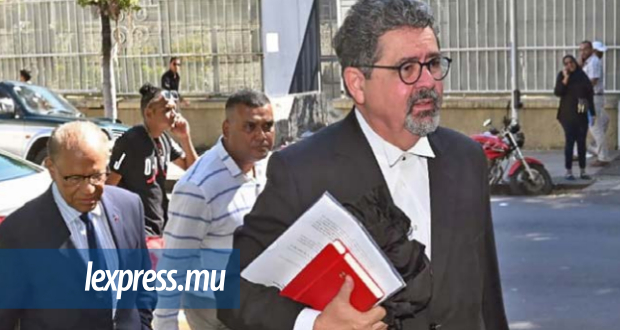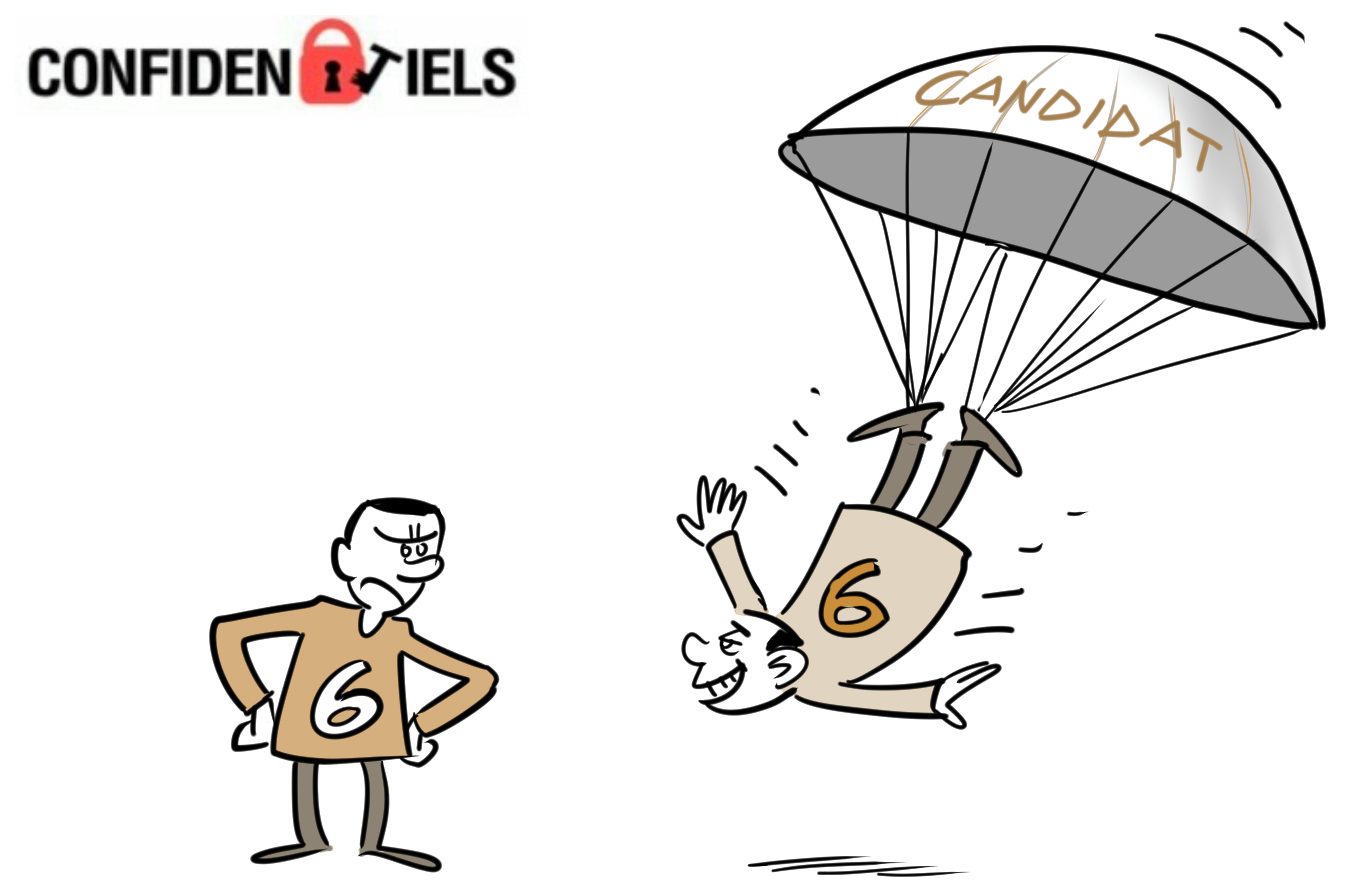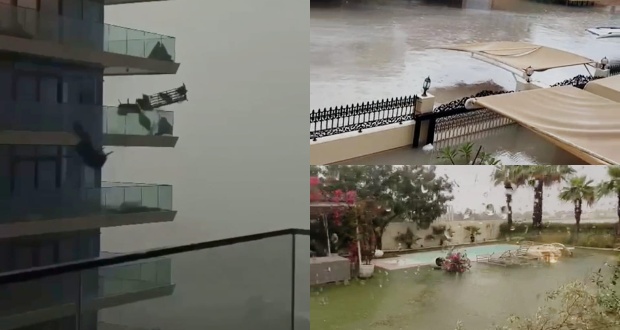Publicité
Vikash Dabee: “Recovery plans in an administration look more like a delaying tactic before the padlocks are put in place”
Par
Partager cet article
Vikash Dabee: “Recovery plans in an administration look more like a delaying tactic before the padlocks are put in place”

With Air Mauritius employees being given a time-bound ultimatum by its administrator, Weekly speaks to Vikash Dabee, chartered accountant and registered insolvency practitioner, about the role of an administrator and administration procedures under the Insolvency Act. He also gives his opinion on whether directors and decision-makers will be held to account.
Air Mauritius (MK) has been under administration for over a month. Now the administrator, Sattar Hajee Abdoola, is asking the staff unions to come up with a proposal or he will sack half of the workers. Is that normal procedure?
MK going into administration is not similar to a normal company becoming insolvent. We are here in the midst of a national crisis where the shareholders of the company have left the most delicate issue of dealing with employees to an administrator. I note that the employees are being hounded and pressured to accept a take it or leave solution. MK is a national institution like the Central Electricity Board and the Central Water Authority and has far reaching implications on each and everyone.
Isn’t it the role of the administrator to try to find to a solution that satisfies all creditors?
Yes, but the administrator cannot go around making offers to creditors, employees being some of them, without presenting them with an overall rescue plan which will include the implications for each of them.
What exactly is the administration procedure?
The administration procedure is designed to hold a business together whilst plans are formed either to put in place a financial restructuring to rescue the company, or to sell the business and assets to produce a better outcome for creditors than would have been achieved through a liquidation. An administrator is like an arbitrator between the company and its creditors.
Why can’t the board act as arbitrator?
The underlying issue with his appointment is precisely because creditors do not trust the board of directors to repay them and the administrator is the professional that comes to make an independent assessment of the company and work out a recovery plan which will repay the creditors. The most important role given by the legislator is Section 222 (b) and Section 228 of the Insolvency Act 2011, which emphasises that “As soon as practicable after the administration of a company begins, the administrator shall investigate the company’s business, property, affairs, and financial circumstances”. So, the administrator as arbitrator has to produce a report on the current status of MK not only its financials, but any agreement entered into be it leases or employees and their implications on the company. In Singapore, the administrator is called a judicial manager and in the UK, an administrator is an officer of the court whether or not he is appointed by the court. This is to emphasise the importance attributed to the administrator in other jurisdictions. He has to rise above the lot and be seen as independent in his acts and doings. His independence, professional integrity and ethics are of utmost importance as he has to perform a delicate balancing act with a minimum number of casualties.
Are you aware of a report having been produced before the MK employees were told my way or the highway?
In view of the size of MK and its business complexity, I do not think this exercise of investigation is over yet to allow the administrator to propose a rescue plan which can qualify as the new MK business model. The employees and other creditors must have a copy of this report before taking a reasonable decision. In fact, Section 237 (6) of the Insolvency Act states that a copy of this report must be sent with the notice for the watershed meeting.
The watershed meeting has been delayed by six months. Is that reasonable?
I would have thought a two-month delay would have been reasonable and any further extension duly justified. Here, the administrator gets a six-month extension to produce a report as requested under Section 228.
The MK employees were not that lucky! They were given one week to accept the administrator’s proposal or lose their jobs…
Exactly! And without being given a copy of the same report which they are entitled to under Section 237 (6) about the company’s business, property affairs and financial circumstances. If this is not acting under duress, I don’t know what is.

What are your fears?
MK is a national carrier that guarantees our independence in the sky as rightly demonstrated in this time of pandemic when it has enabled the country to procure medical supplies at any time and rescue stranded fellow citizens around the world. It has been instrumental in the development of the tourism industry and export sector. It has accumulated landing and air traffic rights, slots in international airports and it is also the pride of its employees. The fear is that that the administration cannot find a salvage plan by 30 November 2020 and runs into delays in meeting the creditors’ demands.
Is there a risk of liquidation as happened with South African Airways?
Yes, if a solution is not found in a timely manner. But the main risk is when the lessors recover their aircrafts as secured creditors as provided under Section 250 and 251 of the Act. This is currently kept on hold as there is no demand for aircraft with the pandemic but it can happen at any time. Worse, there is also the fear that the aircraft is subject to a seizure notice once it lands in an airport at the request of a creditor. If MK is left with no aircraft for its revised business model, it will be difficult for a company in administration to enter into new leases.
Isn’t this an apocalypse scenario?
I would not say apocalypse as shareholders, directors and the administration know fully well that an administration leads to one of two outcomes: a recovery plan or a liquidation. In South African Airways, the administration did not work as it could have as it came in too late and the pandemic unfolded. I believe that restructuring is best done when all is going well as we cannot sleep on our laurels and recovery plans in an administration look more like a delaying tactic before the padlocks are put in place.
How much is the administrator going to walk away with?
We are aware of past trends in the case of the British American Investment, where the Financial Services Commission turned down what it considered as excessive claims. The shareholders, namely the state, has the power to apply to the court to review or fix the administrator’s remuneration.
Do you really see the government objecting to the administrator’s remuneration?
Creditors also can act and ask for the administrator’s fees to be reviewed. Interested parties have to keep a watch on the issue of remuneration. Don’t forget that the administrator is not running the company alone but with the existing management and any other resources available. A reasonable estimate is the salary of the last CEO but adjusted for grounded aeroplanes. If others have to take a haircut, that applies to the administrator too.
We now know that a lot of the troubles of the airline are due to bad management and bad decisions taken such as hiking the employees’ salaries in 2018 when the airline was not profitable, buying aeroplanes the company could not afford and following the mad idea of an air corridor. Is anyone going to pay for such decisions?
Look, as said earlier, Section 228 gives absolute authority to the administrator to carry out an investigation into the affairs of the company. In the UK, notable company failures have gone as far as UK Parliamentary Committee investigations into the reasons for going bust as in the case of BHS and Carillion. Other government bodies have carried out their fact-finding exercises leading to actions being taken. The collapse of Carillion Plc had a ripple effect on the whole construction sector in the UK. It owed money to 33,000 small businesses and had 19,000 employees. It also left a pension deficit of £2.6bn. Four parliamentary committees investigated the reasons for the collapse, which included government contract concentration in the hands of Carillion, the acts and dealings of management and directors, the role of the Big Four audit firms and the pension deficit. In parallel, there was also an investigation by the Insolvency Service and the National Audit Office. There were calls for criminal and civil action against the directors and former senior managers.
How likely is that to happen in the case of MK?
It depends on whether there is a will to activate the provisions in various pieces of legislation on the duties of directors and sanctions for the proven dereliction of duties and decisions to be more accountable to effectively demonstrate that Mauritius is a serious jurisdiction as far as dealing with corporate failures is concerned and for directors to act as stipulated in the Companies Act 2001. A series of laws have been enacted since 2001, including the Companies Act 2001, to reinforce our jurisdiction as a reputable financial jurisdiction. Whether we apply them or not is up to the law enforcement authorities. Directors’ duties do not stop at appointments, attending board meetings and benefitting from generous privileges. Being a director requires expertise and business acumen. And this is not limited to directors and senior officers; the section above also mentions any person who has taken part in a decision-making process.
Who has the authority to query the administrator about the reasons for MK’s collapse?
MK was a listed company and is subjected to a number of regulatory bodies. Any one of these can be expected to officially query the administrator about these reasons. The company was functioning with a board of directors and subcommittees as per the guidelines of the National Corporate Governance Code. It even included a Risk Committee.
Can we really expect a forensic audit to be initiated by the administrator?
The administrator is an officer of the company and if, during his independent examination as requested under Section 228 of the ISA 2009, he comes across any transaction or event that may require a forensic audit, he has the power to initiate one.
The question was not about whether he has the power. Will he do it?
It all depends how far everyone is willing to dig to the bottom of any company that has gone bust, particularly when there is a lot of information in the public domain with respect to some practices. A forensic audit would shed light on any of those allegations and perhaps give a clean sheet to those who managed the company. But are they willing to take the risk? Good question!
Even if all the woes of MK came to an end tomorrow, what guarantees are there that the airline will not fall into a similar situation in the future?
MK and other companies, public or private, will face difficulties going forward. MK will have to face shrinking passenger travel and cargo. A collapse can be economic i.e. no market or competition from other airlines, which make it economically unprofitable to fly. However, before we reach that stage, companies must be managed soundly and on principles of good governance and accountability. It starts by putting the right people in the right place, be in the private or public sector. It serves no purpose to implement a code of good governance if we do not adhere to it at the highest level. We have the appropriate legal framework and institutions to make it work at least on paper but again, people at the centre of it can either render it effective or deviate from it, leading to mismanagement and finally, the organisation collapses. There is an abundance of literature of effective management by corporate gurus but it all revolves around people.
New!
With https://kiosk.lasentinelle.mu/ and the Kiosk LSL app, stay up-to-date from home with just one click. Find Weekly, l’express and all your favourite newspapers and magazines as well as publications from the Indian Ocean, France and Africa on the same digital platform.
Publicité
Les plus récents






